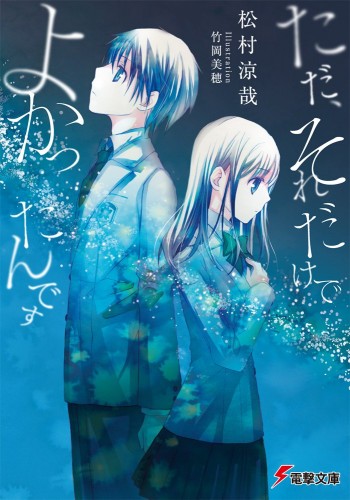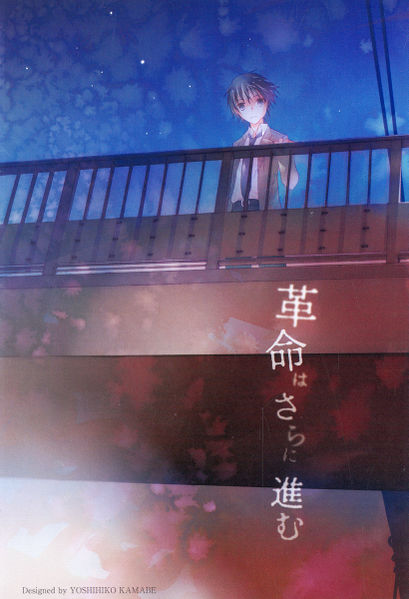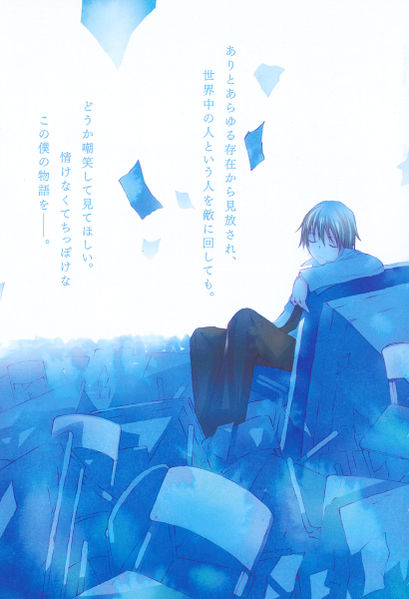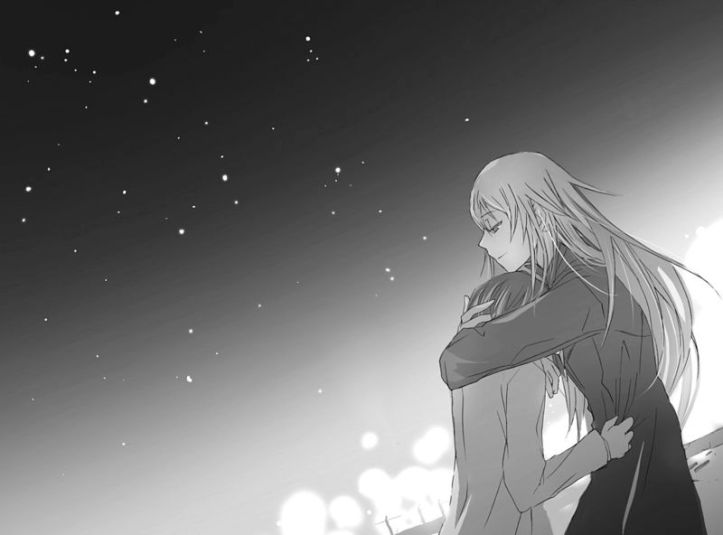
Your mind can be a dark and scary place.
Alone with only your worst thoughts stewing in your mind, the entire world feels like a prison. Your every problem is magnified to impossible proportions; you feel like you’re up against a suffocating wall with no weapons to fight.
A part of you is aware that your problems would be seen as trivial by other people. “It’s all in your head!” they’d say. But it’s not trivial, because they don’t understand that your head has become your enemy, and that it’s with you all the time. That’s why you never tell them. You never tell anyone.
And eventually, you snap.
Tada, Sore Dake de Yokattan Desu is the name of the 22nd Grand Prize Winner of the Dengeki Novel Prize. It’s a story about a boy who commits suicide and the circumstances that drove him to take his own life.
It may be called a “light novel,” but it’s not light reading.

Ryoya Matsumura’s debut novel is set in a middle school, and it is one of the better explorations of a middle schooler’s mentality that I’ve seen. The way middle school friendships can feel like everything, or how the whole world can seem like it’s against you. In middle school, you can be smart enough to be aware that the system is at fault, and yet self-absorbed enough to think that you’re enacting a revolution. In popular media these days, “Middle school syndrome”, or chuunibyou, is often reduced to role-playing a character out of a fantasy book, but that type of over-thinking, grandiose self-absorption has its darker side too.
Tada, Sore Dake de Yokattan Desu plays out like a psychological mystery story, following the older sister of the suicide victim as she attempts to piece together exactly what happened. Every second chapter focuses on the perspective of the boy who was accused of driving his classmate to suicide. The reveals are honestly fairly predictable, but the “whys” are more interesting than the “what” in this case. And the way this novel makes you think about the dynamics behind bullying and how they mesh with the middle school mentality is the best – and most painful – part about it.
Make no mistake: this novel will probably ring true to life if you’ve ever been a victim of bullying. It’s not a straightforward depiction of sadistic bullies ganging up on a wimpy kid. Nobody is a saint in their suffering, and the novel never blames anyone for feeling the way they do, even if the actions they take are extreme.

Not everything about this novel will ring true, however. How seriously you ultimately take this story will depend on the extent you can swallow the shaky foundations of its school caste system. Students rank each other in regular tests to determine their “human worth”, and the principal talks about these glorified popularity contests like they’re a grand social experiment. It’s one thing for the students to take their “human worth” ranking so seriously that they’ll play mind games with each other, but when the 50-something year-old principal started getting in on the shenanigans too, I lost my suspension of disbelief.
Nevertheless, the core themes of the novel manage to remain compelling, even through the shaky writing in the second half. It’s quite clear from early on that the “human worth” tests enable bullying and groupthink, and yet it’s also evident that the problems themselves are universal, and that the human mind can blow them out of proportion. These kids take the most self-destructive routes to solve their problems, and to some extent, you can’t blame that on the “human worth” tests specifically.
There are crucial points in the story when a friend or an adult figure could have changed things for these troubled youths. If they could have just opened up about their feelings, if they could just have been told, “You are worth something to me”…
That alone would have been good enough.
Tada, sore dake de yokatta.

And maybe, for those who are left alive, it’s never too late.
That thought is what makes this novel worth reading.
notes
Tada, Sore Dake de Yokattan Desu doesn’t have an official English translation. There is, at least, a fan translation by Teh_Ping. While I’m glad that other people can enjoy this book for now, mostly I’m hoping for more of these oneshot light novels to get the English release that they deserve.
You may have noticed that the illustrations are drawn by Miho Takeoka, the illustrator most known for her work on Book Girl. It’s probably no coincidence since the style and tone of this novel are very similar to the Book Girl series. If you like Mizuki Nomura’s stories, you will like Tada, Sore Dake de Yokattan Desu.
Looks interesting! If it gets an english release, I’ll be sure to check it out!
Yes, please do!
A timely review given the themes of *A Silent Voice* and the current arc of “3 gatsu no Lion”.
Yeah, I was really reminded of A Silent Voice while reading this novel. The dynamics behind the bullying were similar, in the sense that the entire class was complicit but only one person gets the blame for it. Both portrayals were heartbreaking.
Exceptionally good title, and meaning behind it is pretty powerful (and very true). The story itself isn’t really up my alley in terms of things I’d want to check out, but it’s definitely interesting to read about it.
That’s me, writing about light novels so that you don’t have to read them
Oh, I didn’t know this was a school caste novel. But yeah, this is a popular work and I can see why. There’s a lot of variety in that genre thanks to the numerous approaches found in the work. I haven’t read many to comment on school caste novels as a genre properly, but they really are fascinating.
If this is a school caste novel, then it is not a very good example of it. I thought it was much better at depicting internalised feelings of depression and self-loathing than at critiquing “the system”. I also can’t comment on school caste novels as a genre, but I would not recommend Tada, Sore Dake de Yokattan Desu as one.
As a side note, I’ve been reading your tweets about The 35 Year-Old High School Student and consider my interest piqued… Now to hunt up the DVDs somewhere.